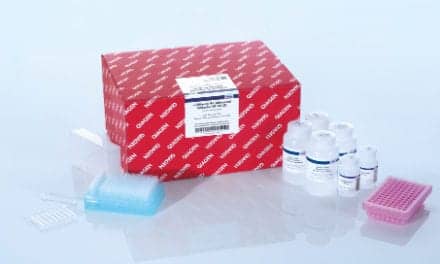Data on the investigational T2Bacteria panel from T2 Biosystems Inc, Lexington, Mass, have demonstrated the ability of the panel to provide the rapid and sensitive identification of six sepsis-causing bacteria, directly from whole blood, with limits of detection as low as 1 CFU/mL. The six clinically relevant bacteria detected by the T2Bacteria panel are Acinetobacter baumannii, Enterococcus faecium, Escherichia coli, Klebsiella pneumoniae, Pseudomonas aeruginosa, and Staphylococcus aureus.
“This is the first time study results demonstrate a rapid and sensitive bacterial species diagnosis direct from whole blood and without the need for blood culture,” says Mike Pfaller, MD, chief medical officer at T2 Biosystems. “The implications of these data are significant, enabling physicians to implement more timely targeted antibiotic therapy, potentially saving patient lives.”
“The use of T2Candida and T2Bacteria, when combined with the practice of empirically administering broad spectrum antibiotics, may typically enable 95% of patients with sepsis to receive rapid and appropriate therapy,” says John McDonough, CEO of T2 Biosystems. “We are excited that the data in this study demonstrate the potential of T2Bacteria to enable the reduction in the current mortality rate of bacterial sepsis by 50%.”
The T2Bacteria panel is designed to run on the T2Dx instrument in conjunction with the T2Candida panel. To achieve similar clinical performance to the T2Candida panel, the T2Bacteria panel would need to achieve a limit of detection (LoD) below 10 CFU/mL for each species. Data demonstrated the T2Bacteria panel’s ability to achieve limits of detection below 10 CFU/mL, and as low as 1 CFU/ml, similar to the performance demonstrated for the T2Candida panel, in six clinically relevant bacteria species.
According to the company, when combined with the use of T2Candida and the practice of empirically administering broad spectrum antibiotics, the rapid detection of the six bacteria may enable 95% of patients with sepsis to receive rapid and appropriate therapy. The bacteria comprise 55% of all positive blood cultures and have growing resistance profiles.
The study data were presented at the recent meeting of the Association for Molecular Pathology. For more information, visit T2 Biosystems.1
REFERENCE
1. Neely, L, Plourde, D, Suchocki, A, et al. T2Bacteria: rapid and sensitive detection and identification of sepsis pathogens in whole blood specimens by T2MR [presentation abstract]. Austin, Tex: Association of Molecular Pathology, 2015 Annual Meeting, Nov 5-7, 2015.







